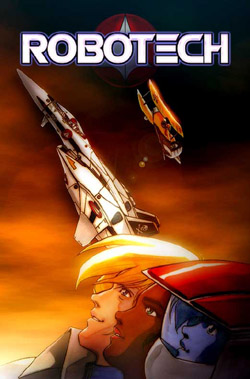 |
 |
 |
|

|
Waiting For Tommy XXV
By
Richard Johnston
Interview with Jim Lee |
Jim
Lee was
a penciller for Marvel
Comics. So were lots of other people. But Jim's fusion of
manga-esque action scenes with John Byrne storytelling, Neal
Adams layouts and Art
Adams attention to detail saw him rise to the top of the
A-list. As his profile grew, so did his fan base. At the height
of his fame, drawing and co-writing X-MEN, a comic created to
showcase his artistic skills, he left. Alongside a bunch of
other A-list creators, he formed Image Comics, fundamentally
shifting the balance of power in the industry.
Five years later, Jim Lee sold his Image studio, Wildstorm,
to Batman,
and his presence has seen that title top the charts month
by month.
I first met Jim Lee at a British comics convention, where
he bucked the trend by not doing sketches for the crowds.
Still, my disappointed nineteen-year-old self hasn't held
it against the man and we've talked occasionally on email
since I took the role of industry muckspreader. Indeed, when
the rumors arose that Marvel was to buy Wildstorm, I told
Jim that there might be trouble with his then recent hire,
Alan
Moore, if Wildstorm went to Marvel.
You know, in retrospect, I should have told him there could
be issues from another company as well, but hey, things worked
out.
I've been chasing Jim for a Waiting For Tommy
interview for a few weeks now. He's clearly a busy man. But
it was worth it. Ladies and gentlemen, take your seats.

ROBOTECH
#0 - SIGNED VERSION |
RICHARD
JOHNSTON: Wildstorm - when did it turn from a place
you could express yourself freely into a place you could
sell to the highest bidder?
JIM
LEE: Rich, this is a bit of a loaded question, don'tcha
think?
RICHARD:
Yes. Welcome to Waiting For Tommy.
JIM:
Oh yeah, sorry forgot. I'll try to be as evasive as
possible. As far as your question--I have to disagree
with your core assumption that WildStorm was in its
infancy some sort of New Age commune.
|
RICHARD:
No tambourines and kaftans? Okay, tell me about WildStorm
in its infancy.
JIM: Although
we have always fostered and nurtured new talent, new voices,
and new directions, it's always been my shop. Informal as
all get out, yes, but a publishing business which I wholly
owned nonetheless... a line which was a mix of both work-for-hire
and creator owned titles. And I think we did a pretty good
job of involving the creative talent in all aspects of the
work they produced...from marketing and promotions to formats
and scheduling (or lack thereof). I don't think it is a philosophical
contradiction to run a publishing operation as a business
while being upfront, honest, and fair with your employees,
freelancers and partners. That's what I have always strived
for and I think we did a heck of a job towards that end.
RICHARD:
Not quite what I was.
JIM:
You mean as far as being sold to the highest bidder? The picture
you paint is a bit exaggerated. It wasn't entirely about dollars
and cents. There were other opportunities which would have made
more money in the short term--a lot more in fact--but were probably
detrimental to the long term health of the company. Without
being overly specific, there were dot.com opportunities or other
publicly traded companies which were interested, and as things
turned out, given what's happened with the stock market, we
clearly made the right decision. DC provided a fair, solid deal,
but more importantly, respected what we were all about and we
knew for the most part, there would be no horrible surprises
down the road. It was as important to me that WildStorm stayed
intact and healthy as much as what I personally got out of the
deal. I certainly didn't want the company to head down the path
of Valiant or Malibu. So far, so good.
Continued
here...
 |
 |
 |
 |
|
|
|

